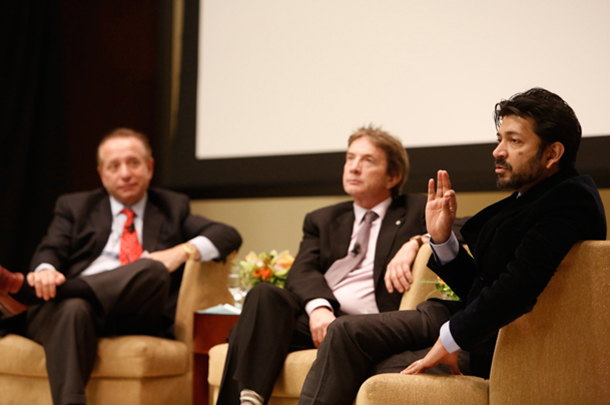Cancer has stumped physicians and scientists for thousands of years. Major discoveries have changed our understanding of cancer and how to treat it, but there is still far more to learn.
“Cancer remains the most significant challenge in the history of medicine,” said Siddhartha Mukherjee, MD, PhD, assistant professor of medicine at Columbia University.
Mukherjee, the author of a Pulitzer Prize winning best-selling book titled, “The Emperor of All Maladies: A Biography of Cancer,” recently spoke before a standing-room-only crowd at Mayer Auditorium as part of the Nancy Short Lecture series, which honors the life of Nancy Short, who died of ovarian cancer in 2010.
Nancy Short’s husband, actor and comedian Martin Short, kicked off the lecture by stating that his wife’s passing led him to become an advocate for cancer research and education. “The knowledge that can be obtained through lectures like this is enormous,” said Short.
To illustrate how far our understanding has come, Mukherjee pointed to the first recorded case of cancer, written in papyrus, which said there was no way to help patients. He cited advances in treatment in recent years:
- Chemotherapy has changed the prognosis for some patients, most notably for children with leukemia, though not all of them.
- New research, has led to greater understanding of cancer’s cellular workings, and new targeted.
- Ongoing experiments with immunotherapy are the “most exciting advance in treatment” in years, according to Mukherjee.
He compared our understanding of cancer to an iceberg, saying that despite all the progress, most of its physiology is still hidden from view. In order to find new and better treatments, scientists must continue to push for more research on the disease.
“Our understanding of cancer physiology is still incomplete,” said Mukherjee. “There is still much more to learn about what signals the growth of cancer and how to shut it off.”
— Hope Hamashige


